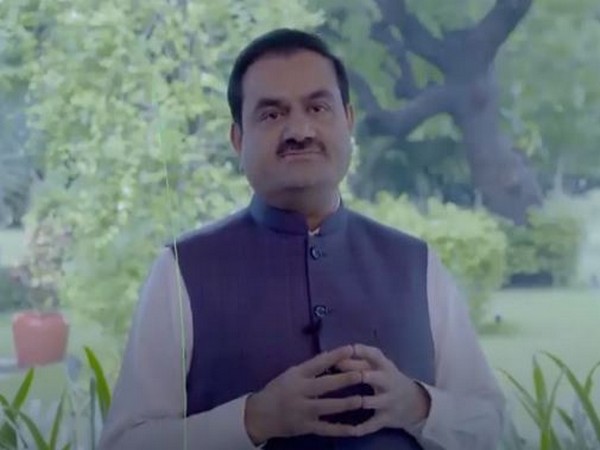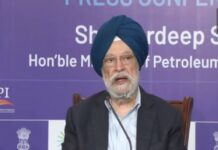New Delhi [India], July 26 (ANI): India has accelerated its renewable energy footprint despite the Covid pandemic and the energy crisis and the country has done so at a time when several developed nations have paused their pursuit of renewable energy goals, Chairman Gautam Adani told shareholders at the Annual General Meeting on Tuesday.
“Also, while we have been often lectured on climate change, we have been one of the very few countries that have accelerated its renewable energy footprint,” Adani said.
India’s renewable energy capacity has increased by almost 300 per cent since 2015.
At the COP26 summit at Glasgow in late 2021, Indian Prime Minister Narendra Modi committed to an ambitious five-part “Panchamrit” pledge, including reaching 500GW of non-fossil electricity capacity, to generate half of all energy requirements from renewables, to reduce emissions by 1 billion tons by 2030.
India also aims to reduce the emissions intensity of GDP by 45 per cent. Finally, India commits to net-zero emissions by 2070.
“In fact, the past year saw an astonishing 125 per cent increase in capital investment in renewables compared to 20-21. There is no stopping India now as over 75 per cent of the surging incremental demand that India needs is expected to be met through the addition of renewable energy generation.”
Indian government must be given credit for the way it has played its role and managed the all-around balancing act, he added.
“Also, coming out of the Covid crisis we have become the fastest growing major economy in an environment where several other large economies are confronted with recessionary trends. Given the indications we see from our businesses, I feel confident that India’s projected GDP growth number of 8% over this current year is very achievable.”
“Never have we walked away from investing in India, never have we slowed our investments. We believe our scale, our diversified business, and our track record of performance position us very strongly to continue to perform well in a variety of market conditions.”
The group’s belief comes from its confidence in the aspirations of the country and its countrymen. The success of the Adani Group is based on its alignment with the Indian growth story.
“The best evidence which showcased our confidence and belief in the future – is our investment of $70 billion in facilitating India’s green transition. We are already one of the world’s largest developers of solar power. Our strength in renewables will empower us enormously in the effort to make green hydrogen the fuel of the future. We are leading the race to turn India from a country over-reliant on the import of oil and gas, to a country that might one day become a net exporter of clean energy. A transformation which will help reshape India’s energy footprint in an extraordinary way,” he added.
Further, in the airport sector, he said the company has become the largest airport operator in India. Around these airports that it operates today, it is engaged in the adjacent businesses of developing aero-tro-polises and creating localized community-based economic centers.
“Our successful IPO of Adani Wilmar makes us the largest FMCG company in the country. And following the acquisition of Holcim’s assets in India that include two of the most recognized brand names across the country – ACC and Ambuja Cements – we are now the second largest cement manufacturer in India,” he further said.
Notably, the group’s combined market capitalization this year exceeded USD 200 billion, supported by robust and sustained growth in our cash flows.
“We were able to raise billions of dollars from the international markets – a direct validation of confidence in the India and Adani growth story. Our growth and success have been recognized around the world. Several foreign governments are now approaching us to work in their geographies and help build their infrastructure. Therefore, in 2022, we also laid the foundation to seek a broader expansion beyond India’s boundaries.”
In his concluding remarks, he said the Adani family came together and decided to contribute Rs 60,000 crores towards charitable activities related to healthcare, education, and skill development, focussing especially on rural India. These three areas should be seen holistically, rather than separately, as they collectively form the drivers for an equitable and future-ready India. (ANI)











